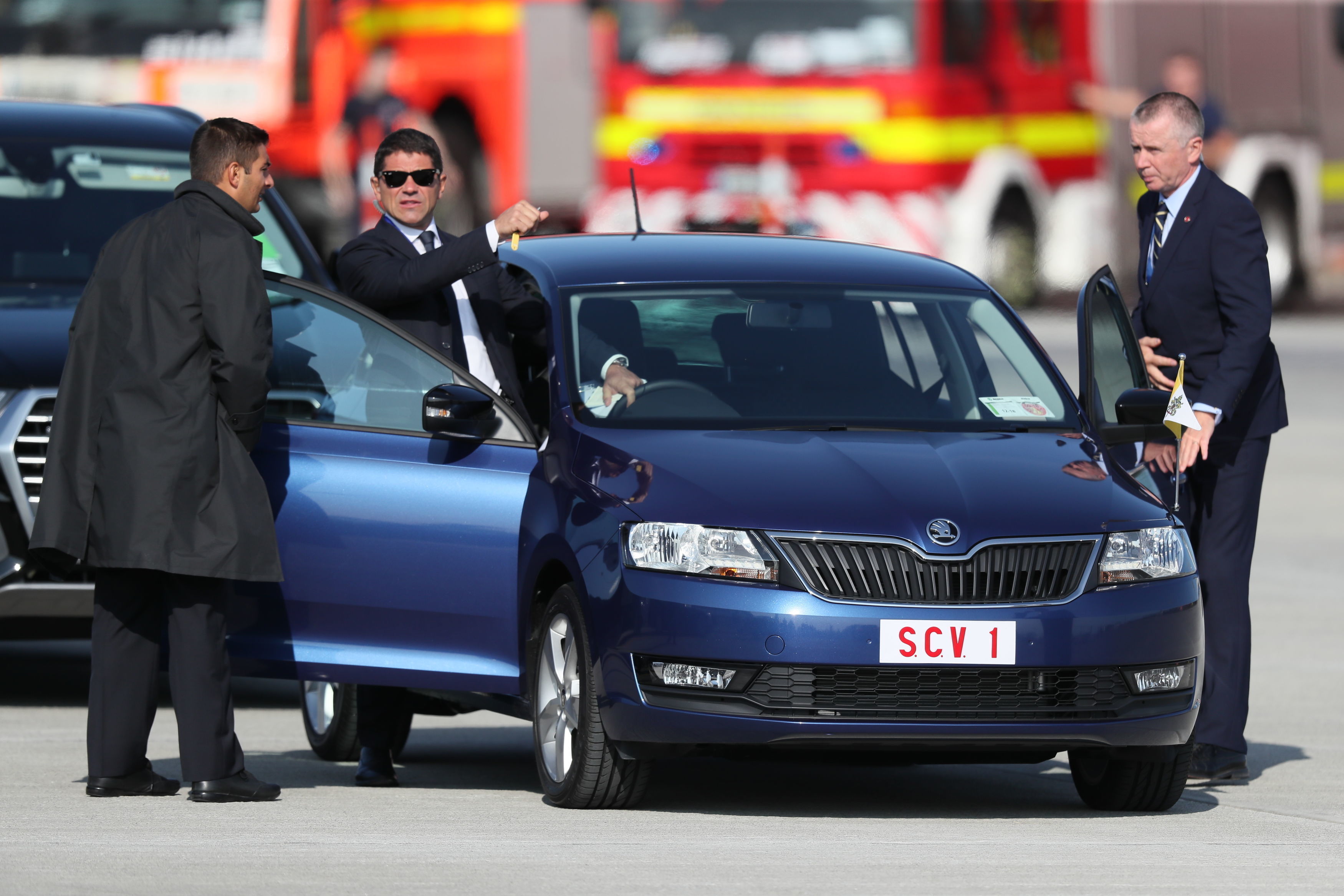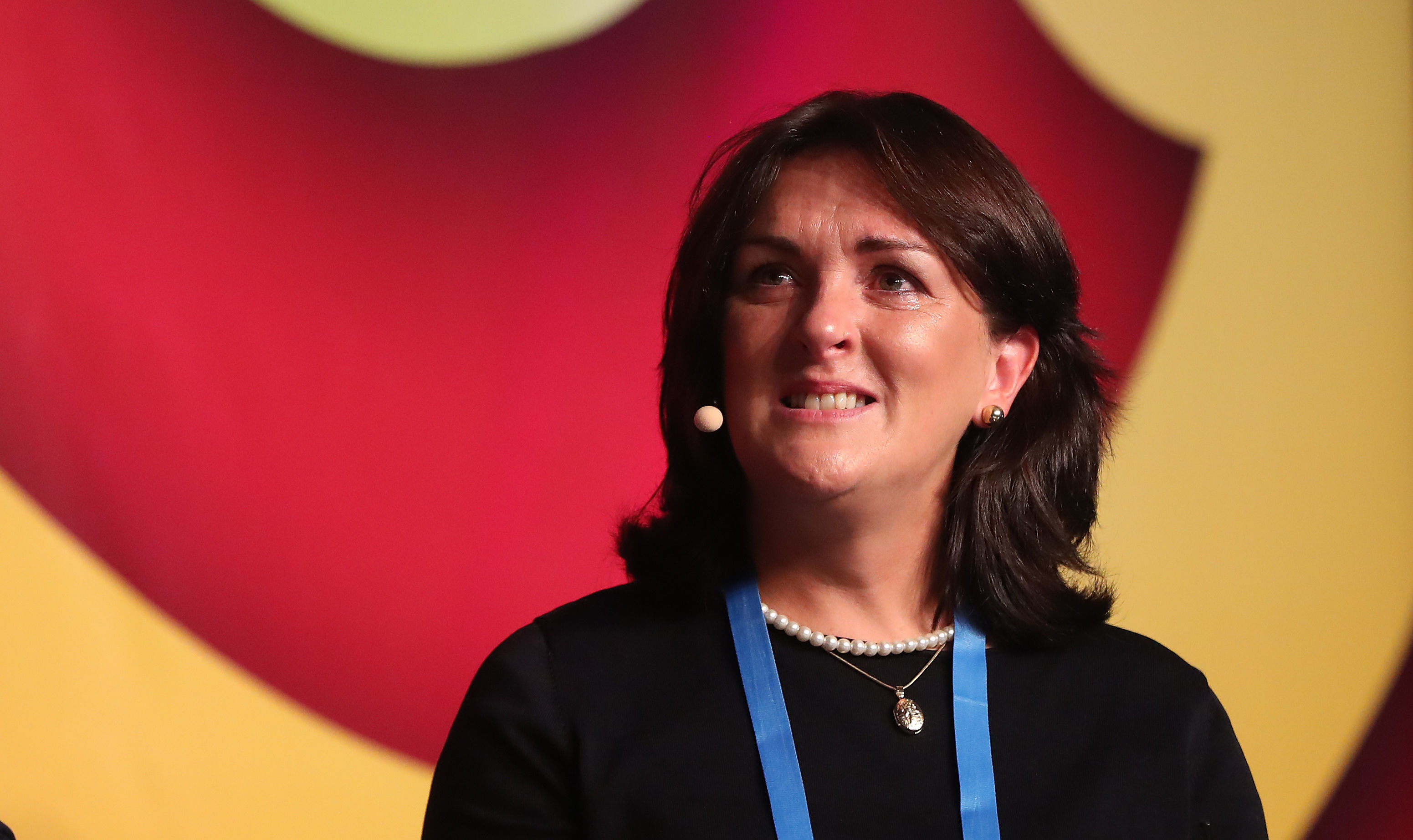The widow of Irish rugby legend, Anthony ‘Axel’ Foley, received a standing ovation from 1,000 people who attended the World Meeting Families discussion on family and sport in Dublin last week.
In an emotional address last Thursday, Olive Foley told the audience, “Losing my husband, confidante and best friend, but most of all the father of my children, created a void that is impossible to fill.”
Forty-two-year-old Anthony Foley died unexpectedly from a heart attack in Paris in October 2016 ahead of Munster’s game against Racing Metro.
“Anthony gave everything to sport, and sport has really given back. They joined together and wrapped us in a blanket of support,” she said in a tribute to the way the sporting world came to her assistance and especially that of her two young sons.
Other members of the panel who discussed faith and family in sport were retired Irish and Lions rugby star Ronan O’Gara, former Manchester United player turned priest Fr Philip Mulryne, and Kerry GAA football legend, Aidan O’Mahony.
It was one of the stand-out sessions of WMOF2018 along with the address on the same day by American Jesuit Fr James Martin on the ways in which Catholic parishes can show welcome and respect to LGBT people and their families.
Another keynote address was given by Cardinal Mario Zenari, Apostolic Nuncio to Syria, who related how on the battlefields of Syria “it is the family above all that suffers injury and destruction” because war is fought mainly in cities such as Homs, Aleppo, Raqqa where women and children remain behind.
He recounted some painful episodes from the eight years of conflict including the starvation of children and the strategies parents have been forced to adopt to try to keep their children alive.
Drawing from Amoris Laetitia to explore themes around family life in the context of conflict in Syria, Cardinal Zenari highlighted how forced migration of families caused by war, persecution, poverty and injustice and the vicissitudes of the journey “puts lives at risk, traumatises people and destabilises families”.
Last Friday, four high profile safeguarding experts connected with the Vatican’s Pontifical Commission for the Protection of Minors addressed an audience gathered for the very first session on safeguarding children ever held at a World Meeting of Families pastoral congress.
They outlined a series of measures they would like the Church to implement to keep children safe.
The session at the Royal Dublin Society was moderated by British psychiatrist, Baroness Sheila Hollins, who was also formerly a member of the Vatican’s PCPM safeguarding body.
Irish clerical abuse survivor, Marie Collins, who is celebrating 42 years of marriage, was joined on the panel by Professor Gabriel Dy-Liacco, a psychotherapist from the Philippines who is a current member of the PCPM, and Barbara Thorp, a former head of the Office for Pastoral Support and Child Protection in Boston.
At a press conference afterwards, Ms Collins told reporters that there is “denial” in the Church over clerical abuse. “It is not imaginary, there are people who would prefer to believe that there are multitudes of false allegations, which we know that there aren’t.”
Barbara Thorp called for strong action from bishops and the Holy See to implement change.
“It is clear that it has to be from the top,” she said and added, “We would like to see the Holy See itself to implement a robust child protection programme, and for the College of Cardinals, the Roman Curia and all who work in the diplomatic corps to have the same kind of safeguarding training and the same codes of conduct and background screening.”
Marie Collins was one of the eight survivors who meet Pope Francis on Saturday. Afterwards she expressed disappointment over his dismissal of her call for a centralised accountability tribunal for bishops accused of covering up for abuser priests. The Pope indicated to Collins that he felt this was not a viable idea. Instead, he believes tribunals operated by local bishops’ conferences are currently working and that this is a better model.
At an in-flight press conference on the return journey to Rome after his two-day visit to Ireland, the Pope described Marie Collins as “fixated” on an accountability tribunal.
Speaking to RTE Radio’s ‘Today with Miriam’ on Monday, Marie Collins said she was “quite proud to be fixated about an accountability tribunal” because it was an idea which Pope Francis himself had backed in 2015 and had said he would give all the necessary finance to and all the personal it requried.
“It never happened and what we were told in the Commission was that the Congregation for the Doctrine of Faith – his curia – had blocked it. They didn’t see the need for it,” she said.
Collins said she had brought the accountability tribunal up with the Pope on Saturday because its failure to materialise was one of the reasons she had resigned from the PCPM.
“If he didn’t think it was a viable idea, why did he approve it and say he was going to give the finance and personnel that were needed,” she challenged.
She added, “I am fixated because I want to see every church leader in the world who protects an abuser who harms children have to face justice”.
Among the more than 200 workshops, panel discussions and keynote addresses at the WMOF2018 pastoral congress in the RDS last week, one of the most popular events was the teen village and the workshops for children.
According to Dr Lorna Gold of Trócaire, a pop-up biodiversity garden built in the car park of the Poor Clare Sisters on Simmonscourt Road beside the RDS also proved extremely popular with young people.
Speaking to The Tablet, Dr Gold said, “Pope Francis has been very strong on the threat to our planet from fossil fuels from climate change. It is really important that this other story about Pope Francis, as the environmental pope, is heard. It is a story that involves young people, it involves families and it involves many different organisations. It is waking people up to the call to be an ecological church.”



 Loading ...
Loading ...